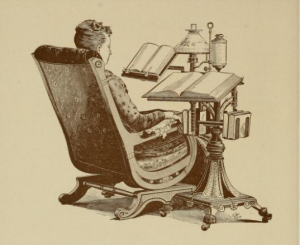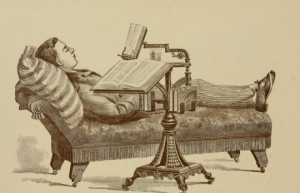 Most of you probably saw Anita Singh’s article in yesterday’s The Telegraph (UK) or other articles on the subject, or at least some posts about it on Facebook:
Most of you probably saw Anita Singh’s article in yesterday’s The Telegraph (UK) or other articles on the subject, or at least some posts about it on Facebook:
“Amazon to pay Kindle authors only for pages read”
There are so many things wrong with this that I hardly know where to begin. First—in case you don’t click on the link and read the article—the gist of it is that authors who self-publish with Amazon’s Kindle Direct Publishing Select will be paid based on the number of pages read rather than the number of books downloaded.
 If warning lights aren’t going off in your head right now you must be taking a noonday nap to escape the heat. My first reaction was, “How do they know how many pages I’ve read?” The whole Big Brother thing just keeps getting creepier. And how does that affect those of us who like to read more than one book at a time? When you stop reading one and don’t pick it up back for several days, does the Kindle-counter think you gave up on the book?
If warning lights aren’t going off in your head right now you must be taking a noonday nap to escape the heat. My first reaction was, “How do they know how many pages I’ve read?” The whole Big Brother thing just keeps getting creepier. And how does that affect those of us who like to read more than one book at a time? When you stop reading one and don’t pick it up back for several days, does the Kindle-counter think you gave up on the book?
But beyond that, the obvious arguments are being batted about all over social media today, this one being a favorite:
So, at a restaurant I should only pay for the food I eat, not the food I order?
There are endless applications to this argument:
Should the price of clothes be dependent on the number of times we wear them?
Should the price of a CD be determined by how often we listen to it?
Should the mortgage (or rent) on our living spaces be defined by how many hours a day we spend there?
 The new system begins on July 1. I wonder how it will affect Kindle users. I don’t have any self-published books on my Kindle, so it won’t affect my reading. (I actually haven’t read a book on my Kindle in many months.)
The new system begins on July 1. I wonder how it will affect Kindle users. I don’t have any self-published books on my Kindle, so it won’t affect my reading. (I actually haven’t read a book on my Kindle in many months.)
“Advances” in the world of technology always bring new challenges. This one will be interesting to watch.
If children who read Catherine’s Pascha on a Kindle read it five or ten or more times, will we get paid five or ten or more times for it?
All those comparisons ignore the fact that the reader is not being charged less if he/she doesn’t finish a book; only the author is being paid less. That’s equivalent to a customer paying for the whole meal but the cook being paid only for how much the customer ate.
Good observation, Katherine. So it’s the author (and by comparison the restaurant, the dress shop, the mortgage holder) who lose, and of course, Kindle wins. Thanks for clarifying this for me! I wasn’t thinking about how Kindle is the third party and there isn’t a third party in the other comparisons I made.
As a writer, former bookseller, book collector, and Kindle reader, I am appalled! I hadn’t seen this before somehow, and I’m so glad you brought it to light. I have more unread books on my shelves than I can count, and I like to think I’ll get to them all someday. How long it takes me to get to them shouldn’t mean the authors wouldn’t receive payment for their work. Having met many fine, good-natured authors as a bookseller, there were times I purchased books at signings for the sole purpose of supporting the author even if the book was not my cup of tea. The only solace is that in the self-pub e-book industry, there are a variety of distributors and platforms so at least indie authors may opt for a less Draconian and exploitative publisher.
So true, Marisa. I’m opting for traditional publishing for my novel, and if that fails, I’ll look at small presses. I have no plans to self publish with Amazon Kindle! Thanks for reading and commenting.